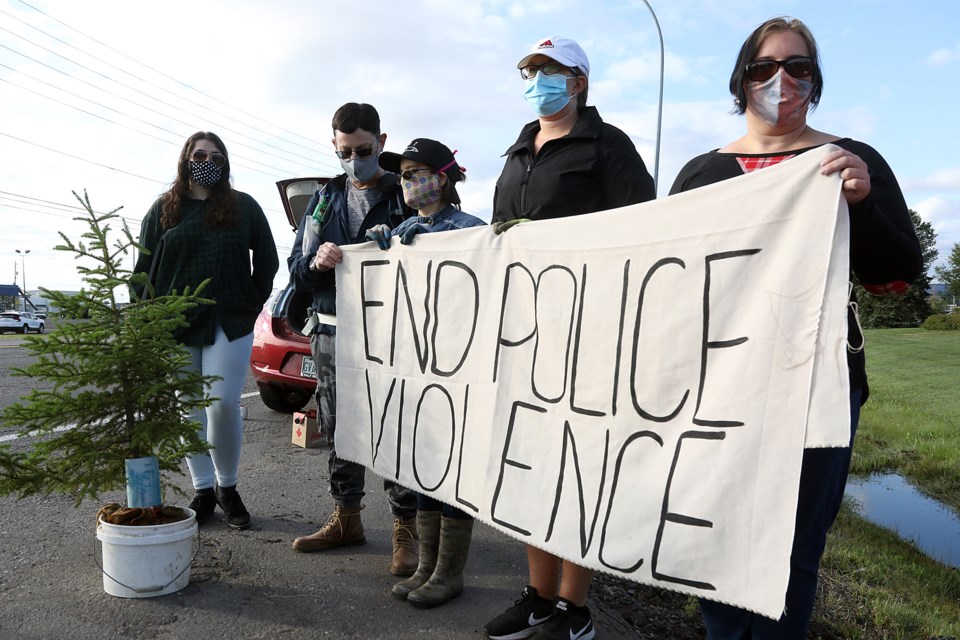THUNDER BAY – The group Not One More Death says they are pleased to see the city react positively to seven recommendations it made to address the ongoing shelter crisis in Thunder Bay.
However, the activist group said the situation, exacerbated by the cold and COVID-19, is still concerning and time is of the essence.
The group on Monday met with city council and asked the city to consider a care bus to transport people in need in cold weather, more responsive and better integrated services, the construction of an Anishinaabe healing lodge and to keep police out of the above-mentioned initiatives.
Kate Rookes, a spokeswoman for Not One More Death, on Wednesday said the group appreciates the efforts the city has made to date.
Suzanne Hansen, a spokeswoman for the group, said the expansion of the isolation shelters, where many in the vulnerable community have been housed after contracting COVID-19, is a sign of co-operation.
“I think that’s good news,” she told Dougall Media.
“I think that the fact that administration is actively looking for input from grassroots organizations is really encouraging. There’s lots more to do.”
Kate Rookes, another spokeswoman for Not One More Death, said she’s glad to see the city acknowledge it can’t be the sole problem-solver and that a collaborative effort is needed to bring about the necessary change in the vulnerable community, which in Thunder Bay has heavy Indigenous ties.
“The real truth of it is these problems run deeper. They’re not just at a city level. They cannot just be solved by one proposal to city council,” Rooks said.
“There needs to be real leadership from the city in acknowledging these issues ... and real honesty from the city about the roots of these issues. It was inevitable and this goes further back than the pandemic. We’re just really seeing this emergency is the result of that underpin our lack of understanding and empathy at many levels.”
Not One More Death says it has identified four additional areas that need attention in order to help solve the ongoing crisis.
First is the lack of affordable housing in Thunder Bay.
“That at least 500 people are depending on the shelter system in this city represents a scandalous failure for which all levels of government must take responsibility,” Hanson said in a release.
“This is a rich country. We have the resources to provide high-quality, affordable housing to everyone. This crisis is the result of political choices. It was not inevitable.”
The group’s organizers are also concerned with major gaps and under-funding in health and social care, including racism in the health-care system.
They are gravely concerned about the continued use of policing and the prison system to solve social problems.
“This city has chosen to spend more per-capita than almost any other city in Canada on policing, and problems continue to get worse,” Hansen said, calling it an ineffective way of dealing with a problem whose roots can often be found in the traumas of racism and colonialism, addiction, abuse and neglect.
There’s also the problem of an unaddressed culture of racism in institutions, not to mention the city at large.
“The bottom line is that, because poverty disproportionately impacts Indigenous people in Thunder Bay, it is ignored,” Rookes said. “Every institution in the city has a role to play in this situation, but it’s part of a larger problem in the culture of the city that is not being addressed.
“The first step is recognizing what nearly every Indigenous organization and many Indigenous people have been saying for decades: Thunder Bay has a major racism problem. We need help.”
